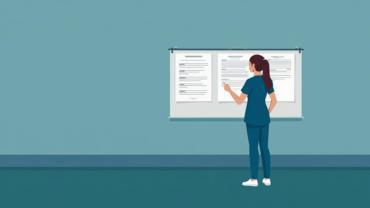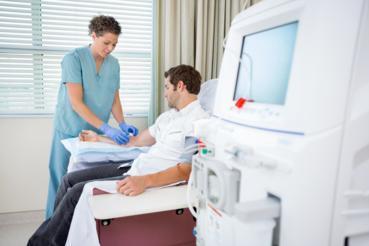
Expert Insights
Updating Patient Education for Heart Failure
There are 6.7 million people in America having Heart Failure and this is expected to increase to10.3 million in 2040, according to HF stats 2024. There are 30 to 40 % of patients are readmitted to hospital for exacerbation of there HF symptoms. We as nurses can lead the charge with improving patient education. First and foremost, Nursing is an interaction between patient and the nurse and education starts with the first encounter with the patient. Yes, patients have a responsibility to participate in their own healthcare regime. Self-care is an important factor in healthcare prevention and management. Patients need knowledge in promoting self-care behaviors. Often self-care and dependent care are behaviors learned within a socio-cultural. Looking at congested heart failure patients; It is important to re-educate these patients with new knowledge that will help them better manage their condition.
Daily activities to help manage HF
• Weigh yourself at the same time every day:
• Before Breakfast
• After emptying your bladder
• Same amount of clothes and no shoes to weigh
• Write down weight and compare to yesterday’s weight.
• Take your medicines as prescribed.
• Check your feet, ankles, legs, and stomach for swelling.
• Eat foods low in salt and avoid drinking too much fluid.
• Balance activity and rest periods.
• Check your oxygen levels daily and if short of air.
As nurses we understand early intervention always creates better patient outcomes:
Start to teach your patients with HF these things:
This is when you need Call your doctor! Do not wait- You need help NOW!!
• Weight gain of 3 pounds in 1 day or 5 or more pounds in 1 week
• Increased shortness of breath
• Increased swelling of feet, ankles, legs, or stomach
• Feeling more tired; no energy, fast heart rate
• Dry, hacking cough
• Dizziness, feeling uneasy, something doesn’t feel right
• Difficult to breathe lying down; need to sleep sitting up
• Pulse ox reading declined by 4%
• Increase work of breathing
• Confusion
We must also educate patients when to seek emergent help.
Emergency - CALL 911
if you experience any of these symptoms:
• Struggling to breathe
• Tachycardia
• Exercise intolerance
• Bronchospasm
• Persistent cough that produces white or pink phlegm
• Swelling of the belly area
• Rapid weight gain from fluid buildup
• Difficulty breathing while at rest
• Waking up with difficulty breathing
• Increased confusion
• Problems breathing when lying down
• Arrhythmia
• Angina
• Loss of consciousness
Treatment options * Patient’s need to be educated that they should not self-adjust their medications this is the doctor’s responsibility.*
Treatment for both types of heart failure (Left and Right) should
• include avoiding excessive salt intake, keeping blood pressure controlled, and staying physically active but include periods of rest.
• There are several medication options to improve these patients’ quality of life,
• Help these patients to lower the risk of hospitalization, and offer longer life, is the goal at hand.
• Some of the commonly used treatments includes ACE inhibitors, angiotensin receptor blockers (ARBs), beta blockers, sacubitril/valsartan (Entresto),
• Diuretics know as water pills:
Thiazide diuretics
chlorothiazide chlorthalidone, hydrochlorothiazide (HCTZ), indapamide, and metolazone
Loop diuretics
ethacrynic acid, bumetanide, furosemide, and torsemide
Potassium-Sparing Diuretics
amiloride, eplerenone, spironolactone, and triamterene
Carbonic anhydrase inhibitors
acetazolamide
Please educate your patients that diuretics can cause:
• Electrolyte imbalances in potassium, sodium, calcium, or magnesium levels
• Constipation
• Lightheadedness
• Xerostomia
• Gouty arthritis
• Head ache
• Increase blood glucose levels
• Muscle spasms
• Fatigue
• GI disturbances
• Some of the new treatment options include SGLT-2 Inhibitors like:
canagliflozin (Invokana), dapagliflozin (Farxiga), and empagliflozin (Jardiance).









